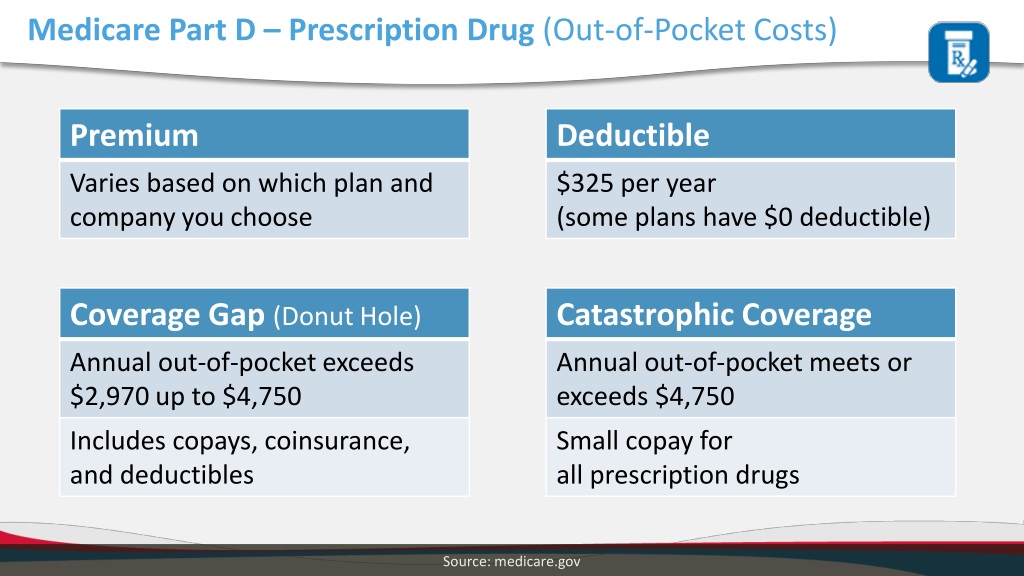

However, they may have to pay the full cost of treatment upfront and out-of-pocket.Ĭhoosing a Medicare-approved healthcare provider means that a person is only responsible for the relevant out-of-pocket cost.


A non-participating provider: These providers have not signed an agreement with Medicare to accept assignments, but they can choose to accept individual patients.If an individual chooses a participating provider, they must pay a 20% coinsurance. A Medicare-certified provider: Providers can accept assignments from Medicare and submit claims to the government for payment of their services.Types of provider and how they assign out-of-pocket expensesĪ healthcare provider can have one of the following statuses in relation to Medicare reimbursement: The cost for the individual will depend on the type of healthcare provider. In some cases, an individual may need to pay upfront and submit a claim for reimbursement, depending on the Medicare status of their doctor. However, out-of-pocket costs may still apply. Providers have an agreement with Medicare to accept the Medicare-approved payment amount for their services. Usually, the insured person will not have to pay the bill for medical services upfront and then file for reimbursement. Medicare then reimburses the medical costs directly to the service provider. Instead, the law states that providers must send the claim directly to Medicare. When an individual has traditional Medicare, they will generally never see a bill from a healthcare provider. Traditional Medicare includes Part A insurance, which covers in-hospital care, and Part B, which covers medical costs. For example, in the state of New York, the limiting charge is 5%.Īn individual may be responsible for a 20% coinsurance and expenses over the agreed amount. Medicare allows out-of-network healthcare providers to charge up to 15% more than the approved amount for their services. Medicare Part B will reimburse 80% of the Medicare-approved amount for the healthcare services the individual received.An individual can also log into to check the status of any claims. The individual will receive a Medicare Summary Notice (MSN) in the mail every 3 months, which outlines any claims for reimbursements.They must also provide itemized bills and a letter explaining why they are submitting a claim personally. If the provider does not file within the time limit, an individual must complete the Patient Request for Medical Payment Form CMS-1490S by following the instructions on the form.The provider has 1 year to submit a bill for their services to a Medicare Administrative Contractor on behalf of the individual.The individual will pay the full cost of the services to the healthcare provider directly.An individual will receive a healthcare service from a non-participating provider.The claiming processĪnyone who needs to pay for healthcare upfront and claim for reimbursement can expect to go through the following steps: If an individual opts for a non-participating provider, they may have to file a claim and advise Medicare of the costs.Ī person would be responsible for the portion of the costs above what Medicare would usually cover, as well as any applicable out-of-pocket expenses. Some Medicare Advantage plans require that an individual chooses an in-network provider. Typically, an individual does not need to file a claim if they choose a healthcare provider that works with Medicare. Share on Pinterest A person with Medicare does not typically have to make a claim if they use an in-network healthcare provider. For Medicare, this usually applies to prescription drugs. Copayment: This is a fixed dollar amount that an insured person pays when receiving certain treatments.Coinsurance: This is a percentage of a treatment cost that a person will need to self-fund.Deductible: This is an annual amount that a person must spend out of pocket within a certain time period before an insurer starts to fund their treatments.

We may use a few terms in this piece that can be helpful to understand when selecting the best insurance plan: This article will explain how payments and reimbursement processes work within the different parts of Medicare. Typically, an individual does not have to submit a claim to Medicare for reimbursement of their healthcare costs. However, an insured person must meet their out-of-pocket expenses before Medicare pays for medical services. Instead, Medicare will usually pay the healthcare provider for treatment directly. People with Medicare coverage do not pay upfront for their healthcare when they choose a Medicare-enrolled provider.


 0 kommentar(er)
0 kommentar(er)
